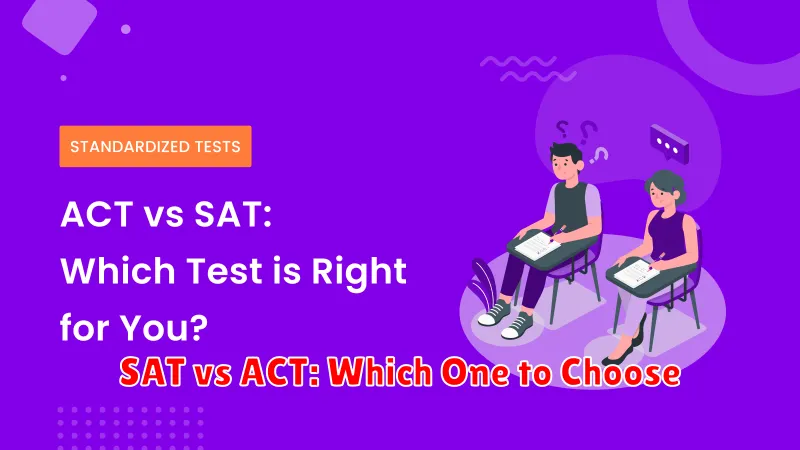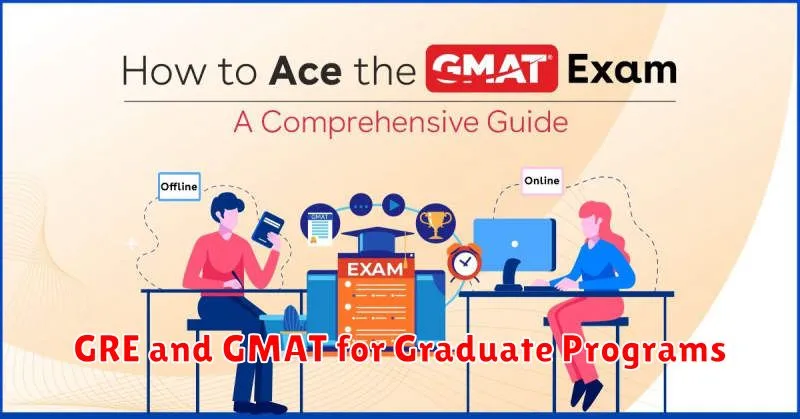As the landscape of higher education continues to evolve, staying informed about the most critical university admission tests becomes paramount for students aspiring to enter prestigious institutions. In 2025, understanding these tests not only opens doors to a plethora of educational opportunities but also helps candidates align their preparation strategies with the latest trends and requirements. This article delves into the most significant exams you need to be aware of, offering insights into what makes each test essential and how they have adapted to the ever-changing demands of collegiate academia. Whether you are an aspiring undergraduate or a graduate student, familiarize yourself with these pivotal assessments to ensure your academic journey starts on the right foot.
Overview of Most Common Admission Tests
In 2025, aspiring university students will still encounter several common admission tests that are critical for entry into numerous academic programs. These tests are designed to assess a wide array of skills, ensuring students are prepared for higher education challenges.
The SAT and ACT remain integral for students aiming for undergraduate programs mainly in the United States. The SAT evaluates a student’s readiness for college through sections such as Evidence-Based Reading, Writing, and Math. On the other hand, the ACT includes sections that cover English, Mathematics, Reading, and Science, with an optional Writing component.
For postgraduate programs, the Graduate Record Examinations (GRE) and the Graduate Management Admission Test (GMAT) are often required. The GRE tests verbal reasoning, quantitative reasoning, and analytical writing skills. Conversely, the GMAT focuses on those four areas, aiming specifically at graduate business programs.
International students may need to take language proficiency exams like the TOEFL or IELTS to demonstrate their English language skills. These tests are crucial for evaluating a student’s ability to read, write, speak, and understand English at an academic level.
With education systems continually evolving, staying updated on these admission test requirements will help prospective students navigate the application process more effectively.
SAT vs ACT: Which One to Choose

Deciding between the SAT and the ACT can be a crucial step in preparing for university admissions. Both tests are accepted by most colleges in the United States, but they differ in structure and content, making the choice significant based on a student’s strengths and preferences.
The SAT is known for its emphasis on evidence-based reading and writing and mathematics. It includes a section specifically dedicated to math without a calculator, which might appeal to students who excel in mental calculations and algebraic problem-solving. Additionally, the SAT provides more time per question, potentially benefiting those who prefer a slower pace in tackling challenging problems.
In contrast, the ACT includes a broader range of subjects by featuring a science reasoning section alongside its English, mathematics, and reading components. This makes it an attractive option for students who have a strong grounding in scientific analysis and prefer a test that mirrors a well-rounded academic skill set. The ACT is often perceived as more straightforward in terms of question style, which could favor individuals who perform well under time pressure.
To make an informed choice, students should consider taking practice tests of both exams. This can shed light on which format suits them best and where their performance aligns with their academic strengths. Ultimately, understanding personal learning styles and testing preferences will guide students to the exam that not only sets them up for success but also aligns with their overall college admission strategy.
IELTS vs TOEFL for International Students
When it comes to university admission tests, both IELTS and TOEFL are critical for international students aiming to study in English-speaking countries. As of 2025, these tests remain crucial in assessing a student’s proficiency in English.
The IELTS exam is recognized widely by institutions in the UK, Australia, and Canada. It is composed of four key components: Listening, Reading, Writing, and Speaking. The test uses a band system ranging from 1 to 9 to determine a candidate’s proficiency level. One distinct feature of IELTS is the face-to-face speaking test, which some students find more personable and engaging.
On the other hand, the TOEFL test is typically preferred by universities in the United States. It predominantly follows a computer-based assessment also divided into four sections: Reading, Listening, Speaking, and Writing. Scored out of 120, TOEFL focuses more on academic English and is often considered slightly more suitable for students accustomed to American English.
Deciding between these two exams depends on several factors: the location of your desired institution, personal comfort with certain test formats, and individual strengths in language skills. Both tests require rigorous preparation, and understanding their structure can significantly impact your performance. Therefore, it is recommended to choose the test that aligns best with your academic goals.
GRE and GMAT for Graduate Programs

In 2025, the Graduate Record Examination (GRE) and the Graduate Management Admission Test (GMAT) remain pivotal elements for admission into various graduate programs. These standardized tests are designed to assess the critical thinking, analytical writing, quantitative reasoning, and verbal reasoning skills of applicants, which are essential for success in graduate-level studies.
The GRE is widely accepted across a multitude of graduate programs including those in the humanities, sciences, and social sciences. It provides a measure of general readiness for graduate study. The test comprises three main sections: Analytical Writing, Verbal Reasoning, and Quantitative Reasoning, offering universities a comprehensive insight into the applicant’s capabilities.
Alternatively, the GMAT is predominantly required for admission into business schools and management programs. It specifically evaluates skills pertinent to business and management contexts through its four sections: Analytical Writing Assessment, Integrated Reasoning, Quantitative, and Verbal sections. The GMAT is designed to predict success in business education and beyond.
Both GRE and GMAT scores are crucial components of the application process, often forming a basis for initial screening. Applicants are advised to choose their test based on the program requirements and to prepare thoroughly to achieve scores that reflect their academic potential.
Duolingo English Test – A Rising Alternative
As universities worldwide continue to adapt to evolving educational landscapes, the Duolingo English Test (DET) has emerged as a significant player among English proficiency assessments. Designed to meet the needs of contemporary applicants, the test offers a flexible and accessible alternative to traditional exams like the TOEFL and IELTS.
The DET is a computer-adaptive test, meaning it adjusts the difficulty based on the test taker’s ability, providing a unique and personalized assessment experience. One of its key advantages is that it can be taken entirely online from anywhere in the world, thus eliminating the need for travel and reducing overall test-related expenses.
The test duration is a concise one hour, and results are typically available within 48 hours. This speed and convenience have made the DET particularly attractive to students in regions with limited access to testing centers.
Furthermore, the DET is increasingly being accepted by a growing number of academic institutions globally. Universities are beginning to recognize the test’s capability to effectively measure a student’s English proficiency using advanced AI-driven evaluations.
As we approach 2025, it’s expected that the DET will continue to gain traction, offering a practical and modern solution to English proficiency testing for university admissions. Its rise marks a progressive shift towards more accessible, reliable, and efficient methods of evaluating language skills in higher education.
Test Dates, Fees, and Registration Tips
Understanding the test dates for university admission exams in 2025 is crucial for effective preparation. Most tests have multiple dates spread throughout the year, allowing students to choose the most convenient time. For instance, the SAT is typically offered in the spring and fall, providing flexibility.
The fees for these tests vary. For example, the ACT fee starts at around $60, while the SAT begins at approximately $55. These figures can increase with optional essay sections or additional services. It’s vital to budget for these costs in advance to avoid surprises during registration.
Early registration is key to securing your preferred test date and location. Most testing services offer an extended registration window with a late fee. To avoid extra charges, plan to register as soon as the dates are announced. Keep an eye on official testing websites for the latest updates and deadlines.
Test Prep Resources That Actually Work
Preparing for university admission tests is a crucial step for prospective students in 2025. Identifying effective tools and strategies can significantly impact your performance. Here are some trusted resources that have proven their effectiveness in helping students achieve high scores.
Online platforms like Khan Academy and Magoosh offer comprehensive practice questions and full-length tests. Their adaptive algorithms ensure that practice sessions are tailored to each user’s strengths and weaknesses, enhancing understanding and performance.
For a more traditional approach, study guides published by The Princeton Review and Barron’s remain staples. These guides provide detailed explanations and strategies for each section of the test, making them a reliable resource for students who prefer a structured study plan.
Additionally, connecting with tutors or joining study groups can offer personalized guidance and support. Tutors can provide focused assistance on areas that need improvement, while study groups encourage collaborative learning and peer motivation.
Lastly, ensure to integrate time management techniques into your study routine. Practice under timed conditions to simulate the test environment, and develop strategies to allocate time wisely across different sections.
By selecting the right resources and committing to a disciplined study schedule, students can increase their chances of gaining admission to their chosen universities in 2025.
Score Requirements for Top Universities
Securing admission to a top university in 2025 requires careful consideration of test scores. As academic competition intensifies, understanding these requirements is crucial for aspiring students.
Most elite institutions, such as Ivy League schools, expect high SAT or ACT scores. Prospective students should aim for a score within the top 5% of test-takers nationally, which typically means above 1500 on the SAT or a composite score over 33 on the ACT.
In addition to general standardized tests, specific programs, like engineering or medicine, might require extraordinary performance in subject-specific exams like the SAT Subject Tests or the AP Exams. For instance, scoring a 5 on AP Calculus or Physics can greatly enhance a candidate’s competitiveness.
TOEFL or IELTS scores are critical for international applicants. Most top-tier universities in the US set the minimum required TOEFL score at around 100 and an IELTS score at 7.5.
Ultimately, while standardized test scores are vital, they are part of a holistic admissions process that also considers extracurricular achievements, personal essays, and letters of recommendation.

